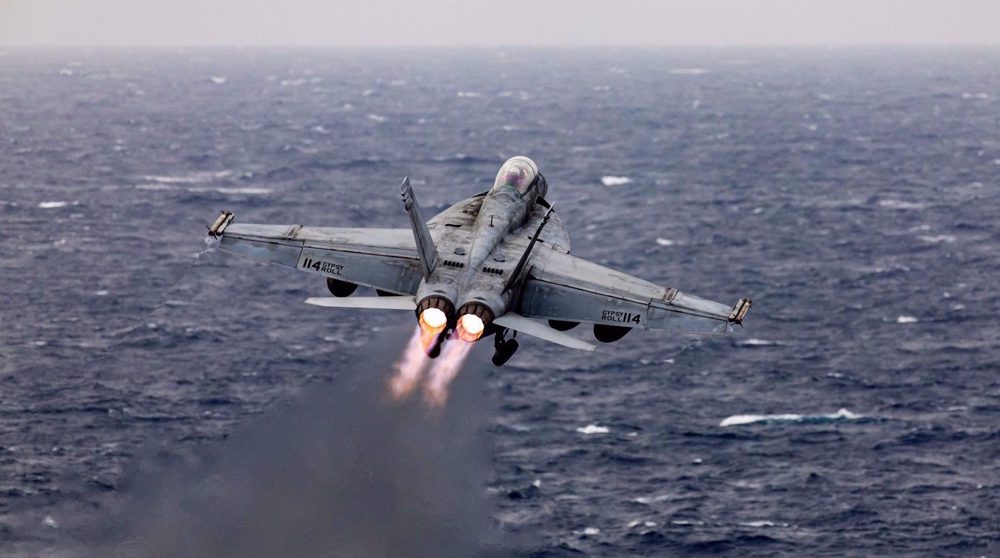Failure of Saudi war in Yemen bad news for Israel: Haaretz
The failure of the Saudi war on Yemen will have grave consequences for Israel as Tel Aviv fears that Washington’s bid to isolate Tehran is unwinding, according to a report published by Israel’s leading daily Haaretz.
“Oil sites in Saudi Arabia and the Emirates have been attacked by drones and Saudi airports have been targeted by Scud missiles… The apparent outcome is that the Emirates has abandoned the war in Yemen, the Saudi effort has failed,” wrote Haaretz on Friday.
“Without military support from the Emirates, it seems that the Saudi ambition to defeat Houthi rebels will fail conclusively,” it said, adding that amid a Washington and Tel Aviv-led bid to isolate Tehran and its allies in the region, “this is not good news”.
Saudi Arabia and a number of its regional allies, namely the United Arab Emirates, launched a devastating war on Yemen in March 2015, with the goal of bringing the government of Saudi-allied former president Abd Rabbuh Mansur Hadi back to power and crushing the popular Houthi Ansarullah movement.
Resistance by Yemen’s armed forces, led by Ansarullah, has, however, pushed the Saudi war to a stalemate, with Yemeni forces deploying increasingly sophisticated retaliatory attacks against the Saudis.
The stepped-up Yemeni retaliatory strikes come as the UAE has announced the gradual withdrawal of its troops from the conflict, largely because Abu Dhabi believes the war appears to have become "unwinnable", according to US reports.
Saudi Arabia relied greatly on the Emirati forces in advancing its war in Yemen, with observers believing that a Saudi-led tribal alliance may eventually disintegrate with factional infighting due to a lack of Emirati oversight.
Clashes between Emirati-backed separatists and Saudi-backed militia were reported earlier this week.
‘Bad news for Israel’
According to Haaretz’s Friday article, the defeat of the Saudi war effort will enable Houthis, which have adamantly voiced their opposition against the Israeli occupation, to facilitate arms exports to Palestinian resistance groups and restrict Israeli presence in the strategic Bab al Mandeb Strait.
The article, however, pointed that the gravest outcome of a Yemeni victory would be the gradual unraveling of what was meant to be a firm regional anti-Iran alliance.
UAE's withdrawal from the Saudi war effort and recent negotiations with Iranian officials indicated that Persian Gulf states are open “to reconsider their policy with respect to Iran” as Tehran and its allies stand firm against Washington, it said.
“This is bad news for the anti-Iranian alliance and possibly indicates a trend that should concern the American president and his close friend, Israeli Prime Minister Benjamin Netanyahu," wrote Haaretz.
The paper added that doubt regarding the success of the US administration’s regional policy was growing, with pessimism "trickling into” Tel Aviv despite nothing being “said of it in public”.
The war on Yemen and an ensuing blockade has taken a heavy toll on the infrastructure on the impoverished Arab country, destroying hospitals, schools, and factories and killing more than an estimated 60,000 Yemenis.
On Friday, thousands of Yemenis converged outside Sana’a International Airport in the capital to protest the US-backed blockade.
American warplane downed after Yemeni attacks 'baffled' US air defense: Ansarullah
VIDEO | Yemenis praise the military for its successful operations against Israel
VIDEO | Israel continues to bomb Gaza homes
VIDEO | An insider's view of the country: Meybod City in Yazd
‘All wars have rules. All of those rules have been broken’ by Israel
VIDEO | Report flags India’s violation of rights of Rohingya detainees
Turkey's foreign minister meets Syria's de facto leader in Damascus
VIDEO | US Syria plots



















 This makes it easy to access the Press TV website
This makes it easy to access the Press TV website